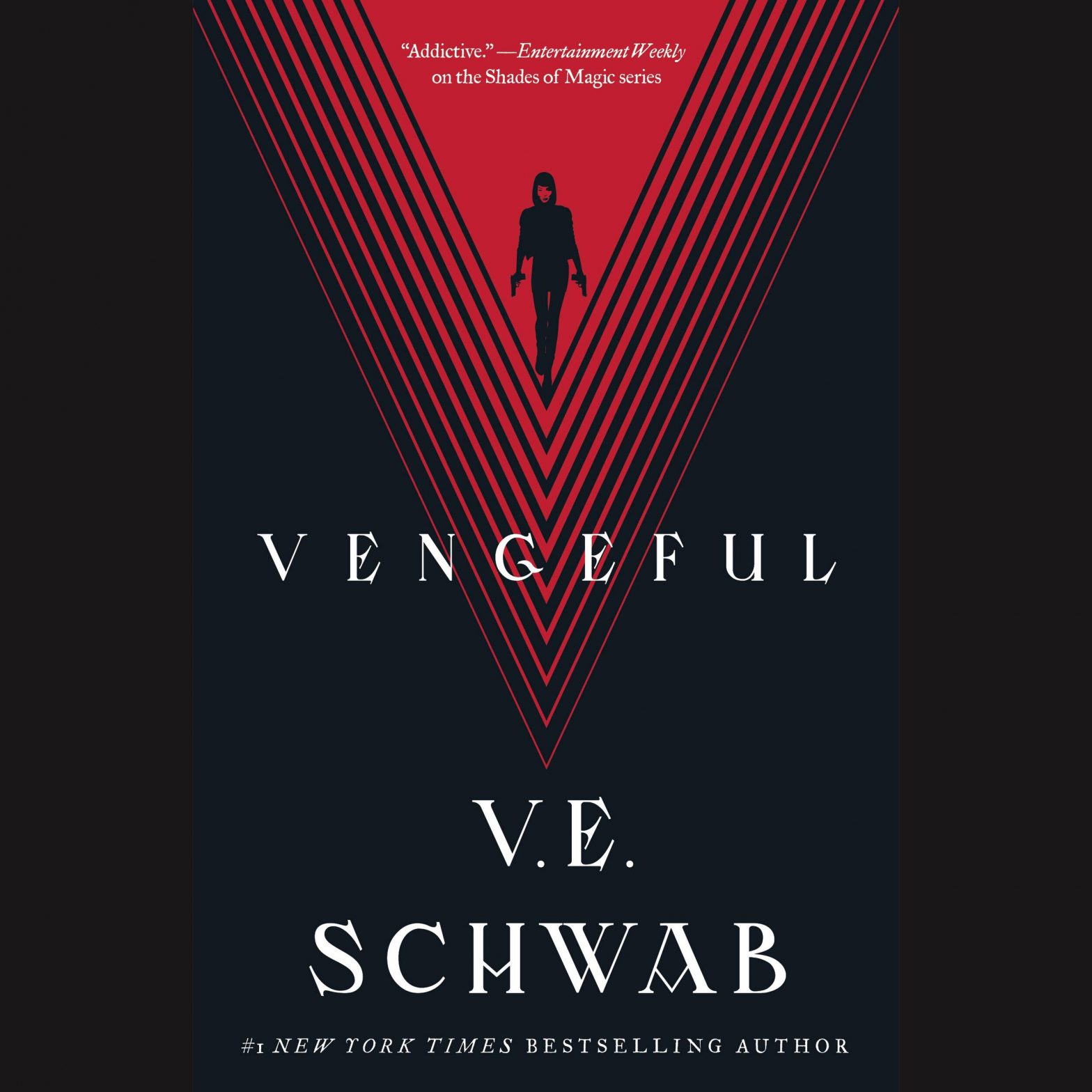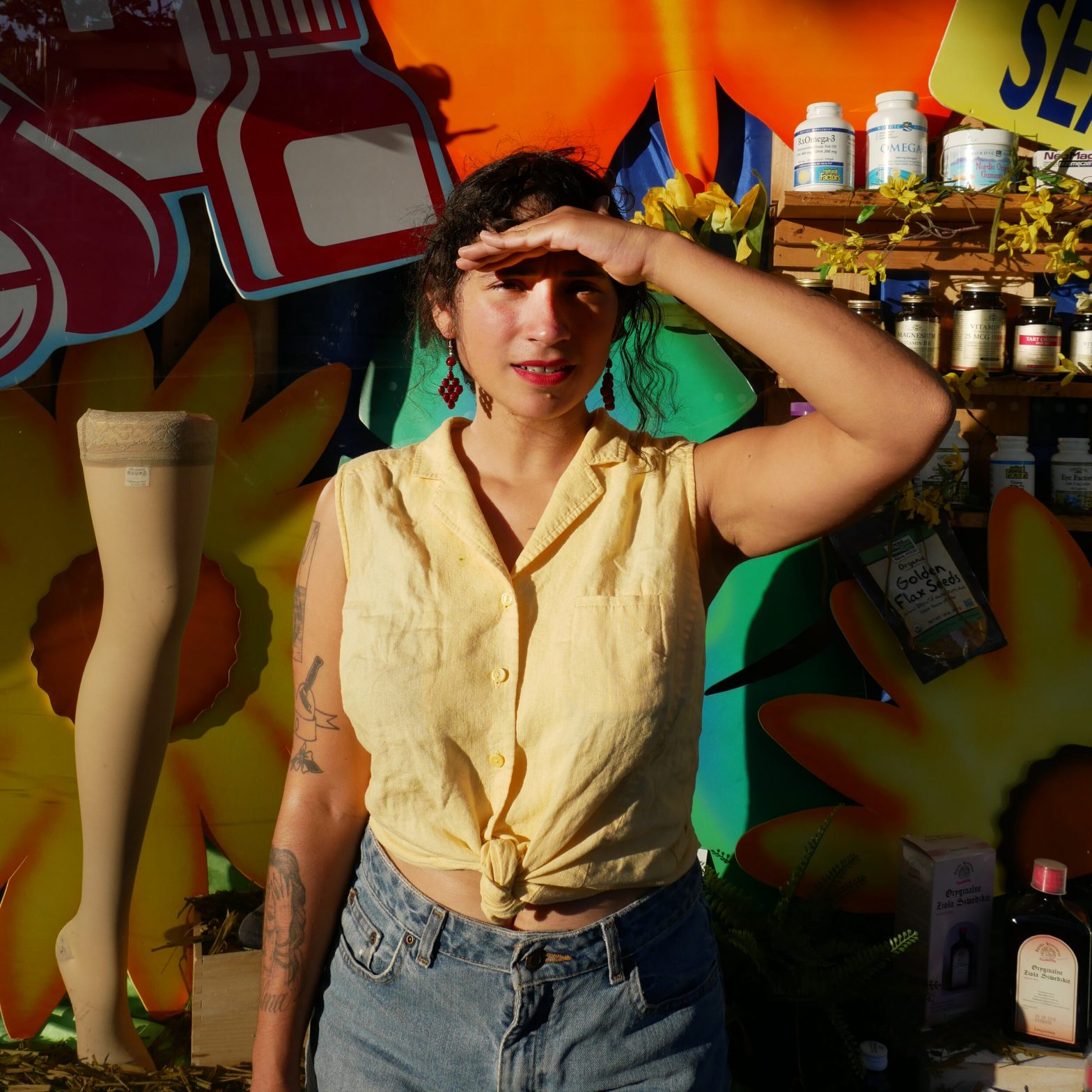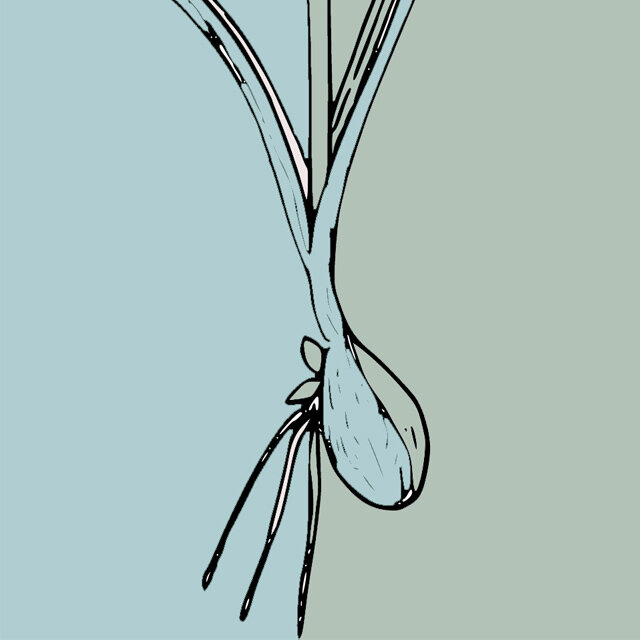Barnabe Brenton Bishop the Third, the Northerner
I ain’t neva met a boy as strange as Barnabe Brenton Bishop the Third. “The Third” was somethin’ he insisted was as important to his three names as salt was to fries. Well, he didn’t quite say it like that ’cause that boy didn’t say much of anythin’. He was a Northerner come down, like nearly all my customers from Highway 88, and I swear to ya, I had to hire him. I coulda made do with old Turtle, Nibbler, and Gingerbeer, but the truckers are always hungry and the tourists always askin’ questions.
Now, I had to hire him. In all my thirty years sweatin’ over the grill, I ain’t neva seen the place so full and for so long. I needed another cow in the barn to help with them Yankees, and gosh darn it if that Barnabe Brenton Bishop—the Third—wasn’t a godsend, at first. ’Course now there’s nothin’ but rumors floatin’ and I’m tellin’ ya this ’cause there ain’t many folks that can say they actually knew Barnabe Brenton Bishop¾the Third. Not the way I knew him and most of the stories goin’. . . well, I wouldn’t be inclined to believe ’em, ’cept that one. . . .
But where are my manners? If my momma knew I was cluckin’ like a hen on Sunday without tellin’ y’all about me and my humble establishment first, she’d be meaner than a pig on Friday. I’m a simple man with simple goals. I started cookin’ in my backyard. Barbeque and burgers were my bread and butta. But then my momma insisted that grillin’ wasn’t real cookin’. She was right. So, she taught me all the family secrets. And I tell ya, I’m almost as good as Ma with a shop of my own off that dusty little highway. Big Bear Billy’s Dine and Drive. Best food for miles, if I do say so myself. But ever since they added ol’ 88 to the truckin’ route, my place ain’t neva been the same.
Now, all the help I needed was my three boys: Turtle, Nibbler, and Gingerbeer. Those ain’t the names their mommas gave ’em, ya know, just nicknames come from a bit of joshin’. And yeah, they’re all a little strange, and I reckon’ a lesser man would kick ’em to the curb for all their faults, but I can’t bring myself to let ’em go. They are good enough half of the time and ain’t neva strange at the same time, thank the Lord Almighty for that. ’Sides, I got it all worked out. Well, I did. Ain’t nothin’ that’ll stop them truckers.
So the day Barnabe Brenton Bishop—the Third—walked into my diner was like the messiah had come. Breezed through the door like a breath of fresh air. He was a strange fella from the beginnin’, I ain’t gotta tell ya, but he was an extra hand in the basket, and a steady one at that. He was a willowy thing, that Barnabe Brenton Bishop. Thin and tall like poor Nibbler, and paler than the skin of a farmer’s ass. Somethin’ ghostly in his features. Boy looked haunted by somethin’. He neva spoke ’bout where he came down from. Neva talked ’bout his folks. Was a sheep without a flock, that boy.
I put him on the grill at first ’cause I couldn’t take Turtle burnin’ another batch, and Nibbler’s shakin’ had gotten worse. His ma started drinkin’ too. . . . Now shoot, I should tell y’all ’bout my shop. There’s the eatin’ room, the space where the booths face the windows to see the highway snakin’ through the dust. It ain’t a grand view, but a view, and then they lined the walls with plush red leather comfier than a tractor’s seat or even an office chair for our fancier guests, the bankers and the like. If I do say so myself, it’s better than any fancy-schmancy car seat, I reckon’. Then there’s the tables spreadin’ and fillin’ up the tiles, a shinin’ white, and the counter with a row of stools curlin’ ’round the edge, and the little service window givin’ a nice view into the kitchen, where I can be chattin’ with folks while I fix ’em up somethin’ hot to eat.
The kitchen’s not much to look at. Really just the flattop grill ‘long the back wall, some friers past that, and a place for choppin’, dicin’ and preppin’. Then ’course the sink full of dishes Gingerbeer’s supposta be washin’ and the ice storage. The only thing not covered in a layer of oil is my signed photo of Willie Nelson. And I reckon I spend some of my yappin’ on the window by the grill that’s lookin’ out on sprawlin’ nothin’ness, ‘cause whenever Barnabe Brenton Bishop wasn’t lookin’ down at sizzlin’ patties or glarin’ over at Willie, he was starin’ at that nothin’ness. But I couldn’t bellyache ‘bout a little daydreamin’ or the kid’s poor taste in music when he got the orders up and out faster than I’d ever seen.
He was good at makin’ all kinds of foods, but his favorite to make was a burger. There was somethin’ ’bout the look on his face when he’d push a patty to the hot griddle, listenin’ to the little drops of grease sputterin’ up, the hiss the meat makes. I couldn’t tell ya what it was ’bout cookin’ up a burger, that was his bread and butta. And I was just fine lettin’ him make as many burgers as he likes ’cause truckers, tourists, and townies love a good burger.
It was all goin’ fine and dandy with Barnabe Brenton Bishop at first. Sure, the boy was as quiet as crickets in winter, always starin’ . . . but he was a good kid and a damn good cook. The issues didn’t really start ’til his third day on the job. It was a Sunday afternoon, when the after- church rush mixed with the travelin’ crowd. The griddle was swamped with all sorts of goodies. The smell of pancakes and eggs, chicken and fries filled the kitchen. Barnabe Brenton Bishop was starin’ out that window while I plated a grilled cheese for a screamin’ babe out by the tables. As I was lookin’ at another order, I held the plate out to the boy and called out.
“Barnabe?” Nothin’. “Barnabe Brenton?” I looked up, but his eyes neva left the window. “Barnabe Brenton Bishop?” He blinked but kept on starin’. “Barnabe Brenton Bishop the Third?” He looked at me with those ghostly eyes. “Would ya mind takin’ this out to table 13?” I asked, lookin’ back at the griddle to flip up a pancake with my free hand while thrustin’ the plate toward him and to look away from those eyes. . . . Then it was the darndest thing, I swear to ya; I neva had it happen to me before. Neva had it happen since.
“I’d rather not,” he said, turnin’ to look back at that window. I gaped at him like a fish on a dock, open-mouthed and blubberin’. “Boy, I don’t think ya heard me right. I don’t care what you’d rather. Take this to table 13.” Then he said it again, like I’d been askin’ if he wanted ketchup with his fries, calmer than a white rabbit in snow. “I’d rather not.” I just stared at the side of his face for a few precious seconds, tryin’ to make heads or tails of that boy.
I woulda started demandin’ answers, but the smell of bubblin’ eggs reached me, and my arm was getting tired from holdin’ out the plate that boy wasn’t takin’. I cursed and called out for Gingerbeer. The kid hopped up to me with a smirk on his face, that Johnson red hair on him glintin’ under my yellow lights. “Take this to table 13.” I grabbed his arm, ’fore he could get far. “And don’t do anythin’ to it.” I turned back to the cookin’ food and thought I ought to have a talk with Barnabe Brenton Bishop after this rush was over. But I neva did. Figured it was first-rush nerves, or maybe I wasn’t clear enough with him ’bout how we work, that at Big Bear Billy’s everyone does a little bit of everythin’.
I figured he’d figure it out soon enough. But a few days later, when Johnson came ‘round with the weekly greens, beans and all the finer things, it happened again. It was early in the mornin’ when the town still wakin’ up, not quite hungry yet. Nibbler and Gingerbeer were unloadin’ the boxes, but it was slow goin’. Nibbler—poor Nibbler’s thin as a wire and as bright as a bulb—was movin’ stiff and the truck was plenty full. And ’course when the rooster awakes, Nibbler’s a-shakes. I called out in the silence of the kitchen where ol’ Turtle was whippin’ up the odd order from some truckers and early birds, and that boy was probably starin’ at the nothin’ness.
“Barnabe?” Nothin’. “Barnabe Brenton?” Silence. “Barnabe Brenton Bishop?” I sighed. Nibbler and Gingerbeer exchanged a look but didn’t say nothin’. Nibbler was still shakin’, since it was the mornin’, and Gingerbeer wouldn’t dare try sassin’ with his pa watchin’. “Barnabe Brenton Bishop¾the Third!” There was an echoing “Yes?”
“Come out here and help the boys with the unloadin’.” There was a beat of silence, then that boy called out, rather softly, “I’d rather not.”
I went stompin’ into the kitchen, madder than a sleepin’ bear after it’s been poked. “Boy, now I know that you did not just tell me what you’d rather not do. Now, I told ya to go help ’em boys with unloadin’ that truck.” He turned to look at me with those haunted eyes of his, and I just—I lost all my fire, stalled like a truck without fuel. “I’d rather not,” Barnabe Brenton Bishop said again with the tone like a still lake as he pushed down on a pancake, makin’ it sizzle, lookin’ away from me to stare out that godforsaken window. Ol’ Turtle just slowly smiled at me with a wide, wrinkled smile, his neck ramrod straight as he stood, lazily pushing bacon on its back. “Turtle, go help the boys unload ’fore the rush starts up.”
“Whatever ya need, Big Bear Bill.” He shuffled on past me, happy to do just ‘bout anythin’ this early in the mornin’. I jabbed out a finger at Barnabe Brenton Bishop and said, “This ain’t over, boy,” to his blank stare and followed Turtle out to the truck.
Headin’ back into the mornin’ sun, I could see the soft panic in Nibbler’s shoulders, the way his tall frame shrank at the anger that rolled off me like stink offa hog. “Whatcha gonna do about him talkin’ back like that?” he asked in a sharp, quiet voice. I couldn’t look inta his big, sad Bambi eyes. And I swear to ya, I didn’t know what I was gonna do with Barnabe Brenton Bishop the Third, so I just grabbed a box of carrots. “You oughta set him straight. He’s gotta be good or else nobody’s gonna—he’s gotta be good. You oughta put him in his place,” Nibbler kept on sayin’ in a distant, frightened voice, like a parrot ’bout to go to the vet.
He always spends the mornin’ mutterin’ ‘bout not bein’ good and the like in that voice that sounded quite a bit like his folks. I sighed at the carrots. “Nobody’s oughta do anythin’. He’ll figure it out.” I ain’t gonna push that Barnabe Brenton Bishop into doin’ anythin’ he ain’t wanna do. Lookin’ at poor Nibbler shakin’ and shiverin’ in this heat, I ain’t gonna go ‘bout it like that, but lookin’ back toward the kitchen, somethin’ told me violence wouldn’t make that boy learn. And maybe the boy was hurtin’ somewhere like Nibbler, but more serious like. Maybe he can’t bend all the ten feet of his limbs, or his back’s curvier than a mountain road, I don’t know. But I tell ya, there was somethin’ ’bout the way that boy looked at me. I couldn’t’ve knocked some sense into him, like Nibbler suggested that mornin’, even if I wanted too. Somethin’ told me he’d seen enough.
And now I know I shoulda handled Barnabe Brenton Bishop better than I did, considerin’ all that happened. After that deliverin’ business, I stopped askin’ him to do little things like servin’ customers and choppin’ up veggies, ’cause I didn’t wanna hear what he’d rather. He’d rather keep pressin’ patties, I reckon’. They were so good they could make a cow smile. And honest, for a coupla days I thought that we had worked out the bumps in the bread with old Barnabe Brenton Bishop the Third. But I started seein’ that that boy wasn’t eatin’ like he was supposed to. I neva did see him leave the diner and I ain’t neva seen him cookin’ and eatin’ somethin’ for himself.
I started to fix him up a burger or somethin’ of the like, like I do for poor Nibbler, but I ain’t neva seen him touch it. He’d just say in that still-lake voice that he was “rather full” or “rather not eat now.” Still can’t wrap my noggin ’round how that boy coulda lived eatin’ as little as he did. Even Nibbler nibbles on somethin’ to stay standin’. Especially considerin’ that Barnabe Brenton Bishop was the first in the kitchen in the mornin’s and the last in the evenin’. It was like that boy neva stopped cookin’, and he was mighty fine at it. And now, I ain’t goin’ stop a cook from cookin’.
But soon I forgot that that boy rathered not do a lot of things. One afternoon, toward the end hump of the hungry folks, I asked Barnabe Brenton Bishop, “Barnabe Brenton Bishop the Third, clean the grease off that griddle when ya done. Would ya?”
“I’d rather not,” he muttered softly while slappin’ a circle of red meat on the grill and pushin’ it down with the shinin’ metal in his hands. I looked toward my Willie Nelson photo for strength, heavin’ outta sigh and crossin’ my arms ’fore facin’ the boy where he hunched over heat. Now my anger was buildin’ and not even Willie could soothe it.
“You gotta clean after cookin’, boy. How long we gonna keep playin’ this game?”
“I’d rather not play any games.” That was it. I stormed out of the kitchen like a bear out a stream. I found Nibbler smilin’ and servin’ up some late-lunchin’ locals and Turtle grumblin’ over some ketchup bottles he was supposed to be fillin’.
“Barnabe said he’d rather not clean up the mess the meat makes. Ain’t that somethin’, Turtle?” At the mention of his name, Turtle’s shoulders lifted a little more toward his ears as he retreated into his shell. He glared at me through his wrinkles. “That sure is somethin’,” Turtle snapped, jaw flaps a-jigglin’. “Somethin’ that calls for a trip into the kitchen and for a whack upside the head. That’s what I’d rather.” As he said this, he squeezed the red bottle between his hands and red squirted all over him. His eyes glazed over, and he goes to that place old folks go for a few seconds, a look blanker than a baby in baptism. He looked at the ketchup on his fingers in confusion, but his eyes hardened, lookin’ meaner than a Catholic in church. He flicked the red away and brought his shoulders up a little more, ’til ya could barely see he had a neck.
“Damn that boy. I told ya, Big Bear Bill, you neva shoulda hired a damn carpetbagger. Damn Northernerswouldn’t know a full day’s work if it bit them in the ass. I ain’t gonna clean up after the damn boy. In my day, you were beaten black for talkin’ like that,” Turtle went on sayin’, and I remind y’all that this was after noon now. Nibbler timidly handed a rag to the sauce-stained Turtle, who snatched it away with a flick of his wrist, grumblin’ away as he did.
Nibbler was surpressin’ a flinch and since it was well past noon, he did a good job of it. He looked at me with them big brown eyes, so different than Barnabe Brenton Bishop’s ghostly blues, and I swear to ya, all Nibbler did was look me in the eyes and say, “Big Bear Bill, please.” And I felt that anger falter. I can’t tell ya if it was pleadin’ in his voice or look in his eyes but I ain’t neva gonna be like Nibbler’s old man . . . Anyways, that afternoon Barnabe Brenton Bishop got what he’d rather.
Rather is such a funny Northerner word, ain’t it? I find myself sayin’ it more, and honest, my shoulders tense every time poor Nibbler, ol’ Turtle, or any other folk for that matter, say it without thinkin’, and it’ll send me grumblin’ ’bout it each time. “Big Bear Bill, would ya rather I ordered up the blue napkins or the white ones?” “Big Bear Bill, I rather liked that burger,” “That was rather amazing, Big Bear Bill.” Gingerbeer got a kick outta it. “Ain’t it rather great, Big Bear Bill, what’s rather likely to happen. Rather you want it or now. Rather annoyin’, ain’t it?” I neva could understand how that Barnabe Brenton Bishop went on rathin’ his way through life. But I was startin’ to get a better idea.
Now every third Sunday for every month I come in earlier than early to balance my books in peace before church. And I’m tellin’ ya this ’cause the third Sunday of the month that I hired that boy, Barnabe Brenton Bishop, is worth mentionin’. It was a quiet mornin’, goin’ like they all go when the sun’s barely up. It was cool for once, and I was whistlin’ to myself as I was walkin’ to my shop. When I tried pushin’ the door to my diner open, it was the darndest thing. The tune fell from my lips as the door wouldn’t budge.
Now, I ain’t in the habit of lockin’ my doors. I got no reason to. Sometimes I remember and when Nibbler works late he always locks up, but it ain’t often. So I started diggin’ ’round for my key, prayin’ I actually had one on me and I wouldn’t have to go on home or wait for ol’ Turtle, poor Nibbler, or the landlord, or stiff and straight, egg whites and plain toast, Mr. Folley to come on by with one of theirs. I finally found it, pickin’ up my song once more, stuck the stick of metal into the lock, turned ’til I heard the click, and pushed, only to be pushed back ’gain, by the damn door that wouldn’t move. “What in tarnation,” I muttered to myself.
It was locked from the inside, makin’ it stubborner than an ass grazin’. ’Course, I thought maybe Nibbler was hidin’ out inside. He’s done that a coupla times when things with his folks got . . . rough and was needin’ a safe place with frozen peas and a deadbolt and chain or two that I put on them doors just for him. So when a tall figure floated up to the door, a deadbolt clicked back, and sad eyes peeked through the crack. I was expectin’ Nibbler’s eyes layered with dark circles, maybe a bruise or two linin’ his cheeks, not that boy’s ghostly blues starin’ at me, unmarked pale skin colored only by the bronze chain he hovered over. His hair was rumpled like Nibbler’s after a rough night, and his clothes were more wrinkled than Turtle’s neck. “Oh,” was all he said at first. And after a few silent moments, when my mind was still catchin’ up to what was happenin’, he said: “I’m not ready yet. Would you mind coming back in a few minutes? I’d rather appreciate it.” In that quiet, calm voice of his.
Now I can’t begin guessin’ what made me to leave the door to my own shop. Maybe it was that voice that was like a sleepin’ cat or those eyes that were dull like a faded knife . . . or the simple, soft way he closed the door on me. I don’t know, but I turned and took a walk ’round town for a block or two ’fore anger hit me like a bull. I stomped back to my shop to find that Barnabe Brenton Bishop was gone. Without someone to yell at, the anger drained out of me as I walked ‘round my empty place. I wandered ’round the kitchen at the flattop, the fryers, the storage, ‘round the counter at the stools, the booths. And honest, in one of the booths was a little pillow and a thin blanket, and in the ice storage I found a tiny box of trinkets, a brush, a pen, a sliver of soap. Between the box and booth, it was pretty clear what was goin’ on, ’cept I didn’t know why. But I tell ya, I tried to figure out.
I tried explainin’ to the boy that he couldn’t go on livin’ in the diner. I tried to get the boy to come home with me and sleep in a bed ‘til we could get him a place in town. I offered him his pay and then some so he could get settled nicely, but in that voice like the call of the wind, with those eyes like shatterin’ glass, all that boy had to say was “I’d rather not” and just kept on starin’ at that window, not even lookin’ at the grill or the green I’d offered him.
A coupla days after that, Barnabe Brenton Bishop the Third stopped cookin’ altogether. And now, I had him stop ’cause he was gettin’ these burns up and down his hands. I reckon it was from pressin’ down those patties. I neva even seen the boy flinch at the sputterin’ grease. If ya ain’t careful of those jumpin’ little drops of hellfire, they’ll burn a hole through your hand. Most folks learn after a drop or two burns the lesson into them, but Barnabe Brenton Bishop ain’t most folks. I tell ya, I probably warned him to watch the grease, and I bet ya he told me he’d “rather not.” I kept him from cookin’ anythin’ ’til the nasty burns on his hands healed up and he could go on properly flippin’ burgers. He just stood by that window, starin’. I tried to get him to talk ’bout anythin’, but he said he’d rather not talk ’bout it. Not ’bout where he’d come from, or who his folks were, how he came to town. Nothin’ ’bout anythin’ came from that boy’s lips.
That’s how it went on for ’bout a month. The diner would be alive and buzzin’. People eatin’. People talkin’. Food sizzlin’. The kitchen smellin’ like heaven. Turtle’s neck sinkin’. Nibbler shakin’. Gingerbeer smirkin’. And Barnabe Brenton Bishop starin’ out that window, silent and still. Now I barely saw him move from where he’d lean his head ’gainst wall and stare at that nothin’ness. It was the new normal for Big Bear Billy’s, even when his hands healed up nicely—only a little scarrin’—the boy still wouldn’t get cookin’. I let him keep on starin’ ’cause what else was I gonna do. ’Cept it started rubbin’ old Turtle the wrong way, and Gingerbeer had taken to throwin’ things at the boy’s still frame to see if Barnabe would crack, and Nibbler . . . Nibbler started workin’ himself faint.
Somethin’ had to change. I decided with all the money that highway was earnin’ me, it would be rather nice to set up shop a little closer to town. So, I got this place right on Main Street with windows lookin’ out onto the town, the folks passin’ by and passin’ through, right ’cross the street from the ol’ town hall. I got a fine offer for my old spot from a group of outsiders—Northerners at that—lookin’ to expand a chain of theirs, but I swear to ya those chains will neva beat my burgers.
I tried to tell Barnabe Brenton Bishop that we’re leavin’. I made him look me in the eyes and tell me he understood. He blinked those ghostly blues at me and said he understood just fine, but that he’d “rather not leave right now.” I tried tellin’ him that he didn’t work for me no more and that the place didn’t belong to me. He said that “that was rather all right” and that he’d “rather not go” all in that calm as a still lake voice. And honest, I couldn’t get that boy to budge before I handed over the keys and Big Bear Billy’s Dine and Drive moved. And that, I thought, would be the last I heard from Barnabe Brenton Bishop the Third.
Now ol’ Turtle, Nibbler, and Gingerbeer settled nicely to the new place, like baby ducks to water, and most local folks took a likin’ to it and a likin’ to the fact that the ghost of Barnabe Brenton Bishop was no longer hauntin’ ’bout the kitchen. It was bigger than before, filled with shiny and new friers and flattops, the stools and booths were comfier than ever. But it wasn’t complete ’til I got my Willie Nelson hung up. It was a mighty fine shop, if I do say so myself.
It was a few days after we opened up the new and improved Big Bear Billy’s Dine and Drive that, egg whites and plain toast Mr. Folley stopped by my diner for more than a cuppa coffee. He admitted rather quickly that he needed help with those damn outsiders buyin’ my old space. I shook my head at the little man. “I can’t help with them, Folley. It ain’t my fault you decided to go rentin’ to them Yankees.” I smiled at him while handin’ over his egg whites and toast, and pushin’ a cup of butta toward him, which he ignored. I swear, that man likes his food even drier than his personality. He pulled at his stiff, straight suit, coughed, and lowered his voice to whisper in church quiet.
“Big Bear Bill, it ain’t just those Yankees that’s the problem. It’s that boy you hired a while back. Bartalbe Bention Brishop refuses to leave. Those other Yankees are gearin’ up to call the cops, Bill. I swear to ya. It ain’t gonna end well. Can ya try talkin’ to the boy?” I heaved a sigh deeper than the old Miller’s well. “Barnabe Brenton Bishop,” I corrected, quietly. I’d hope that boy woulda been smart enough to take off before the other folks set up shop, considerin’ they were plannin’ on tearin’ the place down. “I’ll head over there and see what I can do, but ya know that boy will rather not listen to me or anybody.”
But still, I went on over to see Barnabe Brenton Bishop, and he was leanin’ ’gainst the last wall to my shop, still starin’ at the nothin’ness. And now, I tried talkin’ sense into him ‘gain. “Boy, you gotta leave or they’re gonna make ya leave. I tell ya, if you go now it’ll be better for ya.” And all that came back was that echoin’ voice sayin’ what he’d rather. Honest, there was no convincin’ that boy to leave. I did all I could, considerin’ what happened next . . . I heard a few days later from Miss Nancy—veggie omelet with spiked orange juice—that those outsiders pushed Barnabe Brenton Bishop outside and ’course he was, in Miss Nancy’s words, “shufflin’ ’round like a weepin’ willow, a shabby little puppy. Poor dear. Ya know, it’s a shame . . . these days . . . tut, tut, tut. . . .”
And few days after that Miss Nancy came in with word that Barnabe Brenton Bishop the Third had been arrested for loiterin’ and trespassin’. It was all I was hearin’ in the shop. All sorts of stories kept on comin’ through my shop, all whisperin’ and yammerin’ like hens over seeds, actin’ like I ain’t gonna hear ’em, like their beaks didn’t peck at my spine every time I heard ’em. So, I decided to pay Barnabe Brenton Bishop a visit, see if there wasn’t somethin’ I could do.
I made my way over to the sheriff’s station, a rinky-dink little office with a cell or two for drunks to sleep it off and to scare any rambunctious little runts with spray paint and a carton of eggs. Had to pick Gingerbeer up outta the station a coupla times. Whenever Gingerbeer’d get caught, I’d told his pa to let me bring over a slice of somethin’ sweet for the sheriff, see if it wouldn’t set things straight. Sheriff Tolley—chocolate chip pancakes, sunny side up eggs and a coffee that’s half sugar—was a good man. But this time, with that damned Barnabe Brenton Bishop, pie wasn’t gonna be enough.
“There’s nothin’ I can do, Big Bear Bill. Boy won’t leave and those out-of-towners that bought up your place won’t stand for him hauntin’ and populatin’ them halls. There ain’t nothin’ I can do for him now. In a coupla days they’ll come pick him up.” I was as deflated as a New Year’s balloon on January 1st. I looked at the boy sittin’ in that little cell, ’hind those thick bars, with his knees drawn up to his chin and his eyes just starin’. “At least let me bring him bring him somethin’ to eat.” Tolley sighed and nodded ’round a mouthful of Nibbler’s sinful cherry ’n raspberry pie. “Please, boy keeps sayin’ he’s ‘not rather hungry.’ I ain’t gonna be responsible when he keels over.”
I left the sheriff’s station that afternoon to tell the boys what had happened, that in Barnabe Brenton Bishop’s words he was “rather all right.” Gingerbeer was frownin’, Nibbler’s lip was quiverin’, and Turtle just snapped that he deserved it. Words he would regret come mornin’, when his shoulders didn’t block his ears. And the next mornin’, ’fore I made my way back to Tolley’s, Turtle was missin’ that Santa smile of his. He laid out everythin’ to make up a feast for that boy, even stuff for ol’ Tolley, includin’ a mighty fine burger with all the fixins that I took over to the little cells with a slice of Turtle’s turtle cake and breakfast for the sheriff.
But when I got there, I swear to ya, it was like Tolley was struck with a sense of madness no amount of coffee with mounds of sugar could solve. “He’s gone,” Tolley gasped out when he laid eyes on me. I felt fear creep into my bones, ’bout havin’ to look in those dead eyes and have them actually be . . . dead. But there are some mercies and one of ’em was findin’ the cell that held Barnabe Brenton Bishop empty. That boy had disappeared like the breeze and set Tolley runnin’ ’round like a bird before a car wheel. But I ran out the station quick like a frog hoppin’ offa log once I’d realized where Barnabe Brenton Bishop was likely to be.
I rushed to my old shop in my beat-up pickup, to the nothin’ness that boy was always starin’ at, ya know, I was certain I’d find that boy sittin’ up ’gainst a wall, starin’ out. Certain he would turn to me and say in that damn calm voice that he “rather liked the view.” ’Stead I found boot prints in the dust, leadin’ out into the nothin’ness. Sheriff Tolley was on my heels and for a few seconds we both just stared out at the nothin’, the open empty desert. There was nothin’ ’round for miles. It ain’t a place to go wanderin’ out into. Tolley took off his hat and the sun glinted off his star as he bent to looked at the prints. He turned, shakin’ his head, lettin’ out a low whistle. No one could survive out there. Honest. Not in this heat, not on foot. That boy was as good as dead.
But I tell ya, I still dream ’bout that boy. Think ’bout what woulda happened if Barnabe Brenton Bishop had been dead that day I came with Tolley’s pie. Think ’bout how the boy musta collapsed out in the dust, curlin’ on himself, sleepin’ to neva rise up ’gain. I’ll dream that I’m cookin’ at the old grill, lookin’ out the window to see that boy wanderin’ ’mongst the nothin’ness. I hear his echoin’ voice in every “rather” I hear and I see his ghostly eyes starin’ at me in every pale Northerner that come through my shop. But he’s gone, gotta be . . . dead and gone like the breeze. And . . . well,that’s all I know ’bout Barnabe Brenton Bishop the Third.
’Cept,’course, for that rumor. And now I believe this one ’cause it’s damn near logical with the way that boy was handlin’ a knife, the dead way he held himself. Miss Nancy—veggie omelet with a spiked orange juice—through way of some Northerner visitin’ ol’ farmer Johnson’s place, told the whole yappin’ town that Barnabe Brenton Bishop had worked for a butcher’s shop. A big chain place with lots of cows and such comin’ through and a lot of meat leavin’. She talked ’bout how he was in charge of comin’ in after the day crew and hackin’ and slashin’ anythin’ worth savin’ for ground beef, and haulin’ and cuttin’ away the dead and rottin’ parts ’til his pale skin was stained red. “The Dead Dead Crew” they called it, ’cause it was the dealin’ with the dead in the dead of night. Now, accordin’ to Miss Nancy, Barnabe Brenton Bishop was abruptly let go, ’cause fancy machines could do his job better than him. And ya know, dead cows sure ain’t that far a stretch from dead men. Is that what he stared on thinkin’ ’bout? Why those eyes took sure a keen interest in pressin’ those raw patties down? Why he’d rather a lot of things? Why he was . . . how he was?
I swear to ya. I wish I knew more to tell ya. Would’ve been nice to put at least a birth year on his gravestone, ya know? Rather depressin’, ain’t it?
Well now, what can I get for ya?
Emma Dailey Mitchell is a recent graduate from Columbia College Chicago. Her writing transcends genre and medium from poetry to various tv scripts even articles in StudyBreaks. When she’s not writing, she’s reading, watching, or listening to all kinds of stories.













